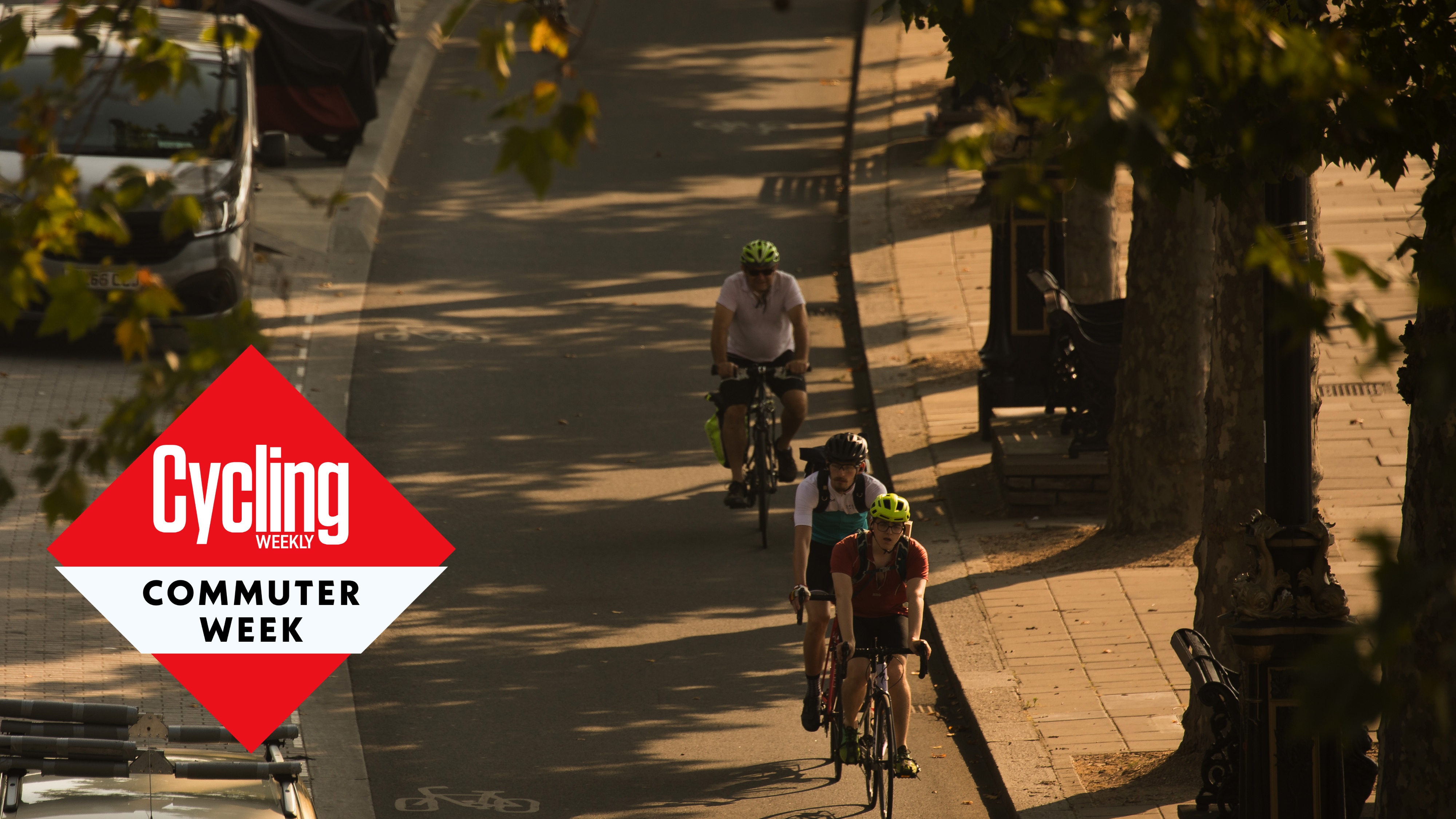Is the Cycle to Work scheme disadvantaging those who really need it?
Questions have been raised about the commission providers charge local bike shops - but the scheme could be improved for users, too


This year the Cycle to Work scheme celebrates its 25th anniversary. A well recognised company benefit, this UK government run salary sacrifice scheme offered by employers, helps employees save up to 42% on the value of a new bike and equipment by taking payments from your monthly salary before tax.
Since 1999 it has helped more than two million in the UK, with seven in ten accessing the scheme basic rate tax payers. It has an impressive success rate too, turning 80% of first time subscribers into regular riders.
I’m one of them. Having bought my first bike (a Brompton folding bike) through the scheme 17 years ago, cycling whether for work, leisure or fitness has become a constant.
The Cycle to Work scheme has made headlines in recent months after it emerged that scheme providers were charging as much as 10%, thus eating into already slim margins, with some providers seeking to undercut the retailer by contacting the customer directly. Not all schemes are created equally - Gogeta or the Green Commute Initiative, for example - charge lower commissions at 3% and 5/6% respectively, and are thus favoured by local bike shops.
Whilst the commission scheme providers take from local bike shops has been raised as a major issue for retailers, for the user, it’s a money saver. Surely, this can only be a good thing? Well, yes, if you’re an employee with an employer that offers the scheme. However, under the current set up, sadly some workers are more equal than others.
Tom Edwards (36) runs his business TG Edwards Woodworks just outside of Haslemere in Surrey. A sole trader, he is frustrated by the lack of support for those in his position.
Edwards’ workshop is seven miles from his home in Godalming. He’d often prefer to cycle to work rather than drive his van, and feels with a cargo bike it would even be possible to do some jobs by bike, too.
“It feels like an additional penalty to setting up your own business that there’s no support if you want to do the right thing, and travel in a healthier and greener way by cycling. It would be great if there was something for sole traders who want to cycle to work or use a bike as part of their business - I’d definitely end up cycling more often if that was the case.”
The latest race content, interviews, features, reviews and expert buying guides, direct to your inbox!
There’s the rub: if you’re self employed or on national minimum or living wage, Cycle to Work is not for you. That seems an unfair penalty for having an entrepreneurial spirit or not having a higher paid job.

Chris Last, chair of the Cycle to Work Alliance, is a passionate believer about the benefits of the scheme particularly during a cost of living crisis. He told Cycling Weekly, “[The scheme] offers a viable opportunity for people to cut costs in quite a challenging economic environment, which will allow them to get to work quickly, easily and healthily.”
However, on the inherent inequality of the scheme, he concurs. “From an inclusive perspective it would be great to have more people utilising the scheme, particularly self-employed, freelancers, and those on the minimum and living wage,” Last said.
“The lowest income earners face the biggest challenges financially, so anything that can be done to support them, the better. That’s one of the things we’re looking to reform.”
The alliance is not alone in its desire for change, so too is the All Party Parliamentary Cycling and Walking Group (APPCWG), a group of like minded MPs and Lords from across the political spectrum working to make cycling and walking easier.
Co-chair of the APPCWG, Conservative MP for North Devon Selaine Saxby, told Cycling Weekly, “We should look to improve the scheme by opening it up to the self-employed and retired people so they too can reap the benefits of increased physical activity.
“Some lower paid employees cannot use the scheme because their income would fall below the National Minimum Wage rules and I would like to see this addressed and have written to the Treasury accordingly. These benefits aren’t just for the workplace but to society generally.”
It’s encouraging to see uniformity from the alliance and politicians that more needs to be done to improve the scheme so more workers can benefit, but perhaps one of the greatest ironies of the scheme given its name, is how those not in employment, education or training are ignored.
Many people in such a situation might find a car too expensive to run, and public transport not fit for their needs. Arguably easier access to a bike could be the means for some to change their position for the better.
Cherry Allan of Godalming, Surrey definitely believes so. Just over one year shy of retirement, she was made redundant in January after 25 years working in policy for a national charity. Keen to find work until her pension kicks in, she’s trawling for jobs in nearby towns and believes a bike would improve her prospects.
“I’m one of about 16% of adults who live in households without a car, so a folding bike - maybe even an electric one - would be ideal for any commuting coming up,” said Allan. “But the cost is still prohibitive, and there's no cycle-related financial incentive currently open to people in my situation.
“I'm trying to do the right thing by sticking to benign transport, keeping fit and economically active, but the Government isn't helping, let alone rewarding me. When I see fuel duty frozen yet again at a cost of £billions, I am, to put it mildly, extremely miffed.”
It’s not just the self-employed and keen to get back to work who are unsupported.
Brian Smith (not his real name) from Newcastle, claims disability benefits while working part time as countryside access advisor. He would love to cycle more, however he feels the current system is too complicated for people like him and with the system making driving the only viable option.
"A minefield of complexity"
“It’s a minefield of complexity which encourages people to opt for a free adapted car. To get hold of a suitable e-bike is bloody difficult – but could actually be much more helpful for me.”
This, according to Smith, is because through the Personal Independence Payment (PIP) scheme, those with limited mobility can opt to have their weekly contributions of £70 go to Motability which will give them access to a new adapted car, where there is no Vehicle Excise Duty, insurance and the only real cost is fuel.
For those with lower levels of disability, they cannot access this scheme, but might benefit from an e-bike. But, you’ve guessed it: they’re left in limbo where access to a car, let alone an appropriate bike is still largely unattainable.
The national charity for cycling, Cycling UK, says it recognises the benefits but also downsides of the Cycle to Work scheme which excludes so many, and suggests the government runs a parallel scheme.
Commercial director, Katie Legg said, “This new scheme could provide targeted support to purchase a pedal cycle, for those who are registered as disabled, or who are referred by a medical professional to a ‘cycling on prescription’ scheme.”
The charity also wants to see the opportunity to ‘try before you buy’, arguing people with limited means can’t be expected to fork out large sums of money without knowing they’ll make good use of the new cycle.
Selaine Saxby MP goes one step further, and suggests potentially a simpler neater solution,”I’ve even suggested [Cycle to Work] could be revamped and repositioned as ‘Cycling For Health’, inviting people to use bikes for errands, leisure and other general transport needs, relaxing the need for 50% of the cycle’s use to be used for commuting purposes.”
If such a scheme was able to accommodate all those currently excluded, it would surely help more people into cycling. The real trick however is how to keep them riding once they start, and that’s a bigger problem altogether requiring improved infrastructure, better behaviour on our roads and for those heading to work knowing their bike will still be there when they finish the day’s shift – but that’s another article altogether.
Sam Jones has worked for nearly 10 years in cycling advocacy and communications. Formerly the Cape Wrath Fellowship custodian, he is a freelance commentator on cycling issues who works in the Surrey Hills on countryside access issues. A keen bikepacker he can be found riding what the UK would like to think is gravel but is actually mostly mud.
